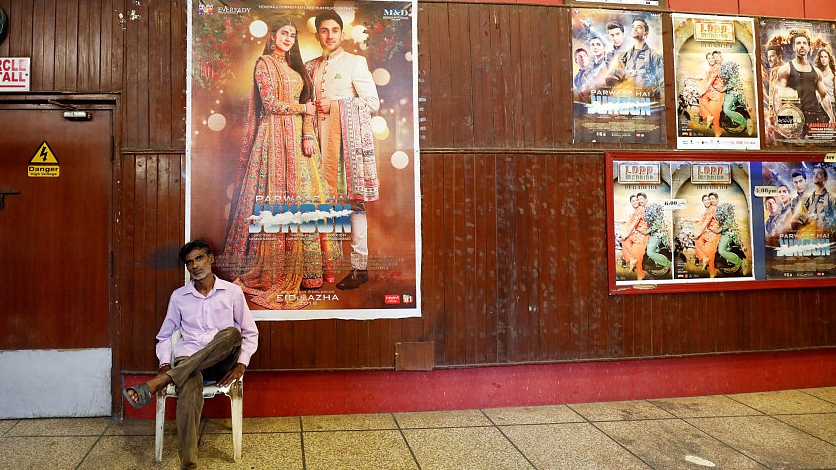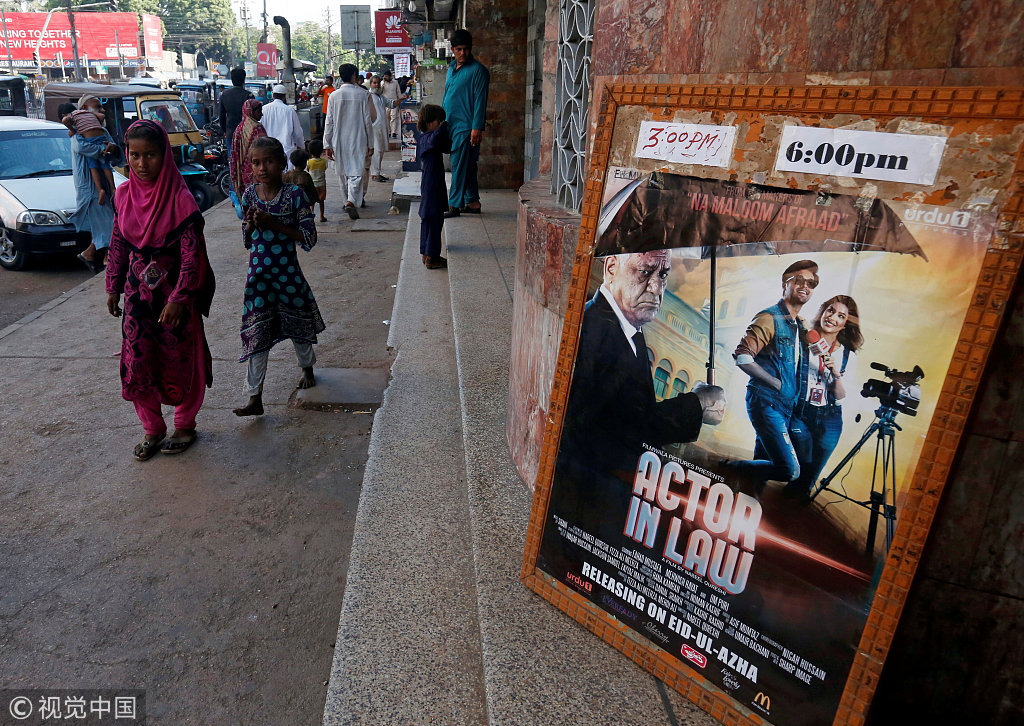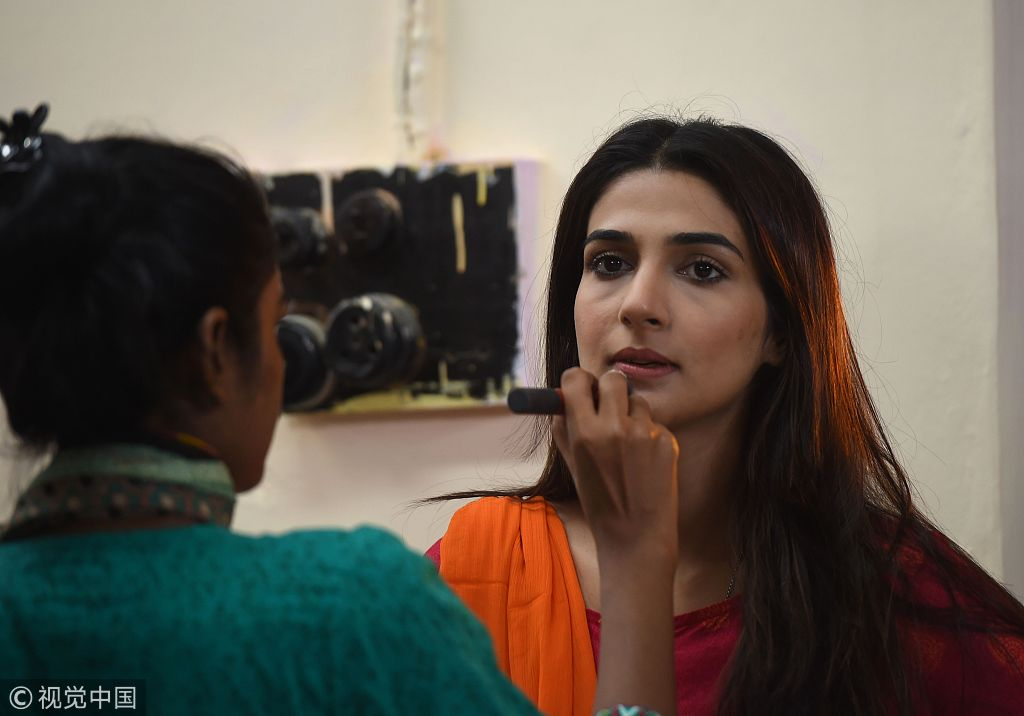
Opinion
17:56, 02-Feb-2019
Opinion: Film can help Pakistan garner international influence
Hajira Mariam

Editor's note: Hajira Maryam is a researcher at the TRT World Research Centre. The article reflects the author's opinion, and not necessarily the views of CGTN.
Transitions and soft power
The universe of film and cinema serves as an inscription of the society it reels in. The silver screen represents one of the most creative ways for conveying human imagination, social values, and political evolutions. After an initial flying start and subsequent stagnation, the ongoing revival of the film industry could offer more than mere entertainment and artistic content.
Joseph Nye, an American political scientist, describes soft power as the capacity to get what you want through forces of attraction. There are three ways to achieve such an effect, namely via the development of an active foreign policy, economic inducements, and cultural exchanges. Nye stressed that culture is the most powerful medium among all three. Therefore, as cinema is an integral part of a society's culture, it comes with the power to influence the mindsets of individuals through storytelling.
If Pakistan's leadership fully engage and support the movie industry, the latter could play a leading role in the country's soft power and contribute to the shaping of the nation's global image and public diplomacy.
Pakistani politics and its reviving cinema
Pakistan's film industry has gone through a series of triumphs and tribulations. After its golden age in the 1960s and the 1970s, the industry declined under the rule of then Pakistani President Zia-ul-Haq. Consequently, the movie infrastructure was shackled, affecting the nascent talents in the country. However, the creative capital and expertise accumulated within the Pakistani society did not wither away completely.

An advertising poster for a Pakistani film with Indian actors is seen outside a movie theater in Karachi, Pakistan, September 30, 2016. /VCG Photo
An advertising poster for a Pakistani film with Indian actors is seen outside a movie theater in Karachi, Pakistan, September 30, 2016. /VCG Photo
During the 1990s, as media restrictions were eased during the era of Benazir Bhutto, the concept of music videos thrived. As various rock bands surfaced, many directors invested their creative skills in producing astonishing music videos. One prominent example of a contemporary director is Shoaib Mansoor. In the mid-1990s, he was the writer behind Pakistan's unofficial national anthem “Dil Dil Pakistan” by the acclaimed rock band, Vital Signs.
Ultimately, as the talent behind music video productions in the 1990s honed their skill-set, they contributed to reviving Pakistan's weakened film industry at the turn of the millennium. Shoaib Mansoor's blockbuster “Khuda Kay Liye” in 2007 is a prime example of this process. The movie is said to have renewed the film industry, therefore, reversing its fortunes and creating demand amongst the public for more output in filmmaking.
As we progress into the 21st century, the effects of the information and communication revolution are being felt even more strongly. Leading directors and producers have access to a wide array of technologies and tools, as well as access to high production budgets. Productions by young talented directors, like Asim Abbasi's production “Cake” paved the way for Pakistani movies to premiere at London's Leicester square in 2018.
A story of two Pakistani sisters, “Cake” relates a realistic women-centric plot focused on an upper-middle-class Pakistani household. Therefore, the story became representative of social interactions within the Pakistani society, spurring audience engagement and generating empathy on issues faced by the community.
Transformative content and the creative pool of cinema
The renaissance of the Pakistani cinema has the capacity to promote positive influence on the country's societal values. It also has the potential to reinforce a positive image of the country by introducing local and global themes that appeal to an international audience.

Pakistani actress Rubab Hashim gets her make-up done as she prepares to film the drama serial Mein Maa Nahi Banna Chahti (I Don't Want To Become A Mother) in Karachi, October 18, 2017. /VCG Photo
Pakistani actress Rubab Hashim gets her make-up done as she prepares to film the drama serial Mein Maa Nahi Banna Chahti (I Don't Want To Become A Mother) in Karachi, October 18, 2017. /VCG Photo
Pakistan struggles to maintain a balanced relationship with different global forces. Yet in the past, the authorities dimmed their interest in the international cultural and art scene. Now is the time to reverse such a trend for resource allocation and investment, which are needed to sharpen the creative skill-set and the film infrastructure that will create an impact at an unprecedented pace.
It will not only foster a movement of ideas, but will also instigate a spur of creative talents, create jobs, enable the reengineering of society in alignment with a more innovative economic model, allow creative cross-collaborations with different film industries across the globe, and boost cultural exports.
It needs to be stressed that cinema's development in the past decades has also been in tandem with a burgeoning middle-class and a youth bulge who seek transformative change. As female-centric roles and gender issues now dominate the scripts, there is a potential to introduce different socially progressive content (climate change, power struggles, realities of rural life, etc.) which will, without doubt, pervade the plots of Pakistani movies.
Cinema, arts and culture can become an asset for Pakistan to garner influence internationally and convey the deep spirit of the society. Imran Khan's agenda of “New Pakistan” is rooted under this stance towards positive reform; therefore, if state actors invest support in these elements, it will thus sustain progress towards a transformative change and engender positive discourse for Pakistan in the future.
(Cover photo: Ticket checker Mukesh, 40, sits by a wall decorated with film posters at the hall of the Bambino Cinema in Karachi, Pakistan, August 30, 2018. /VCG Photo)
(If you want to contribute and have specific expertise, please contact us at opinions@cgtn.com.)

SITEMAP
Copyright © 2018 CGTN. Beijing ICP prepared NO.16065310-3
Copyright © 2018 CGTN. Beijing ICP prepared NO.16065310-3